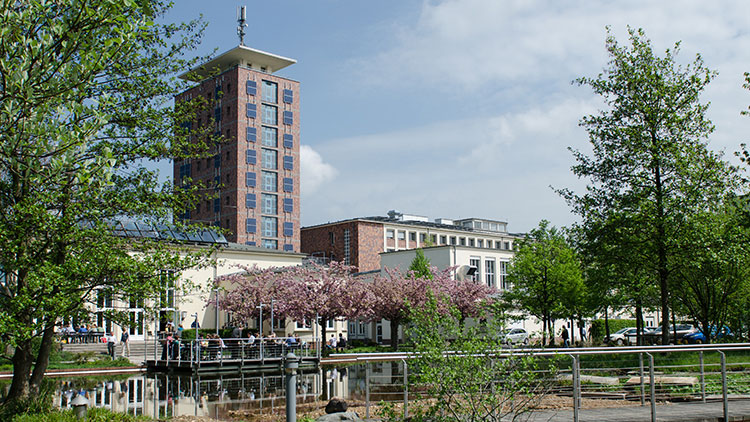The DASYA (DAta-intensive SYstems and Applications) group at the Computer Science Department of the IT University of Copenhagen invites motivated individuals to apply for a PhD position starting 1 October 2021 or soon thereafter and for the duration of 3 years. The project is funded by the NovoNordisk Foundation project "CATS: Choosing A Transfer Source for medical image classification" and is led by Associate Professor Veronika Cheplygina.
Project
Medical imaging algorithms, eg. for detection of abnormalities, are often trained via transfer learning - first on source (publicly available) images, and then on target (clinical) images. An important problem is how to choose the source data. A poor choice will impair the algorithm performance and waste computational resources. Our goal is to develop tools for choosing source data for given types of target data, by systematically studying transfer learning, and proposing dataset similarity measures that allow predicting good source datasets in advance.
The project will hire two PhD students, who will investigate different types of dataset similarities. This specific position is on data-driven similarities, for example based on embeddings via deep neural networks.
The ideal candidate will have:
- A MSc or equivalent in computer science, mathematics, physics, biomedical engineering or a closely related discipline (or a statement signed by the supervisor with the expected completion time for the MSc thesis)
- Programming experience in Python or a similar language
- Practical experience with machine learning techniques
- Enthusiastic about interdisciplinary research in a diverse team
Research environment
The successful applicant will join DASYA lab at ITU (https://dasya.itu.dk) and be supervised by Associate Professor Veronika Cheplygina (www.veronikach.com). The successful applicant will collaborate closely with the other PhD student hired for the project. There are also multiple opportunities for collaboration with other groups at ITU (https://en.itu.dk/research/departments/computer-science-department), as well as a wide network of existing collaborations within and outside Denmark.
The PhD student will also be part of the PhD School at ITU.
We aim at building a diverse team. All applications are welcome, especially those from members of underrepresented groups are encouraged.
Application
The application must be in English and must include:
- Curriculum Vitae
- Letter of motivation, which provides evidence of independent thinking and a grasp of the research field matching the project description
- Documentation of academic degree(s)
- Optionally: applications may include a relevant publication or preprint written by the applicant, or the applicant's (draft) master thesis.
Applications without the above-mentioned required documents will not be assessed. We may ask for references later in the process.
It is understood that even highly qualified applicants will satisfy these requirements to varying degrees, for example because of differences in publication cultures in various research fields.
Early contact with the project leader (Dr. Veronika Cheplygina, vech@itu.dk) is strongly encouraged.
General information
The IT University of Copenhagen (ITU) is a teaching and research-based tertiary institution concerned with information technology (IT) and the opportunities it offers. The IT University has more than 160 full-time Faculty members. Research and teaching in information technology span all academic activities which involve computers including computer science, information and media sciences, humanities and social sciences, business impact and the commercialization of IT.
Salary
Appointment and salary will be in accordance with the Ministry of Finance’s agreement with the Danish Confederation of Professional Associations (AC).
Application procedure
You can only apply for this position through our e-recruitment system. Apply by pushing the button "Apply for position" in the job announcement on our website: http://en.itu.dk/About-ITU/Vacancies
Please read the guidelines for applicants carefully before filling in the application form. You can see the guidelines through this link: https://en.itu.dk/research/phd-programme/available-phd-positions/guidelines-for-applicants
Applications must be written in English. All other documents, such as transcripts must be accompanied by a translation in English or Danish.
Questions about the positions can be directed to Dr. Veronika Cheplygina (vech@itu.dk).
The applicant will be assessed according to the Appointment Order from the Ministry of Science, Technology and Innovation of 13 March 2012.
The IT University may use shortlisting in connection to the recruitment process. In case of shortlisting, the Chair of the hiring committee selects applicants for assessment in consultation with the hiring committee after the application deadline. All applicants are notified whether their application has been passed for assessment. The shortlisting of candidates for assessment is based on the criteria in the job posting.
Application deadline: 31 July 2021 at 23:59 CEST.
Applications/enclosures received at ITU after the application deadline will not be taken into consideration.
If you submit an application, it is your responsibility to ensure that it arrives before the deadline so please allow sufficient time for upload of publications and other documents.
The IT University invites all qualified researchers regardless of age, gender, religious affiliation or ethnic background to apply for the positions.

